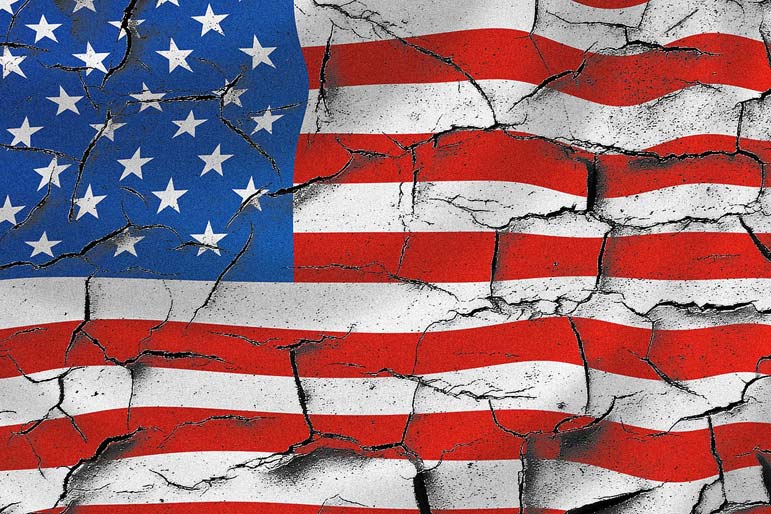
Ricks was commenting on "What Democratic rage would look like," a Bloomberg opinion column that quotes political scientist Thomas Schaller as saying, "I think we're at the beginning of a soft civil war. ... I don't know if the country gets out of it whole."
That sounds pretty serious. The column by Francis Wilkinson presents a catalog of things Democrats are mad about -- from the existence of the electoral college to Trump's "propaganda apparatus" -- and predicts that if Democrats lose the midterm elections, there will be hell to pay. (And Republicans, you know, could make a similar list of their own complaints.)
"I don't know exactly what that would look like," Wilkinson writes. "But liberals have a great deal of cultural, academic and economic heft, stretching from Hollywood to Harvard. Just this week, some Hollywood powerhouses flirted with leveraging their clout against the Trumpist Fox News. There are endless variations on such a power play. If Democrats opt to use their power more aggressively -- breaking rules -- Schaller's soft civil war hardly seems unlikely."
THE CIVIL WAR IS ALREADY STARTING
Well, actually this sort of thing seems to be well underway. Hollywood has basically turned its products, and its award shows, into showcases for "the resistance." Americans are already sorting themselves into communities that are predominantly red or blue. And in heavily blue Washington, D.C., Trump staffers find that a lot of people don't want to date them because of their politics.
White House press secretary Sarah Huckabee Sanders was even kicked out of the Red Hen restaurant in Lexington, Virginia, because the owner and employees disliked her politics. This seems like a small thing, but it would have been largely unthinkable a generation ago.
And, in a somewhat less "soft" manifestation, Homeland Security Secretary Kirstjen Nielsen was bullied out of a restaurant by an angry anti-Trump mob, and a similar mob also showed up outside of her home.
Will it get worse? Probably. To have a civil war, soft or otherwise, takes two sides. But as pseudonymous tweeter Thomas H. Crown notes, it's childishly easy in these days to identify people in mobs, and then to dispatch similar mobs to their homes and workplaces. Eventually, he notes, it becomes "protesters all the way down, and if we haven't yet figured out that can lead to political violence, we're dumb."
Apparently, some of us are dumb or else want violence. As Crown warns, "We carefully erected civil peace to avoid this sort of devolution-to-a-mob. It is a great civilizational achievement and it is intensely fragile." Yes, it is indeed fragile, and many people will miss it when it's entirely gone.
POLITICAL CONTEMPT IS THE PROBLEM
Marriage counselors say that when a couple view one another with contempt, it's a top indicator that the relationship is likely to fail. Americans, who used to know how to disagree with one another without being mutually contemptuous, seem to be forgetting this. And the news media, which promote shrieking outrage in pursuit of ratings and page views, are making the problem worse.
What would make things better? It would be nice if people felt social ties that transcend politics. Americans' lives used to involve a lot more intermediating institutions -- churches, fraternal organizations, neighborhoods -- that crossed political lines. Those have shrunk and decayed, and in fact, for many people politics seems to have become a substitute for religion or fraternal organizations. If you find your identity in your politics, you're not going to identify with people who don't share them.
The rules of bourgeois civility also helped keep things in check, but of course those rules have been shredded for years. We may come to miss them.
America had one disastrous civil war, and those who fought it did a surprisingly good job of coming together afterward, realizing how awful it was to have a political divide that set brother against brother. Let us hope that we will not have to learn that lesson again in a similar fashion.
Glenn Harlan Reynolds, a University of Tennessee law professor, is the author of The New School: How the Information Age Will Save American Education from Itself and is a columnist at USA TODAY.


 Contact The Editor
Contact The Editor
 Articles By This Author
Articles By This Author